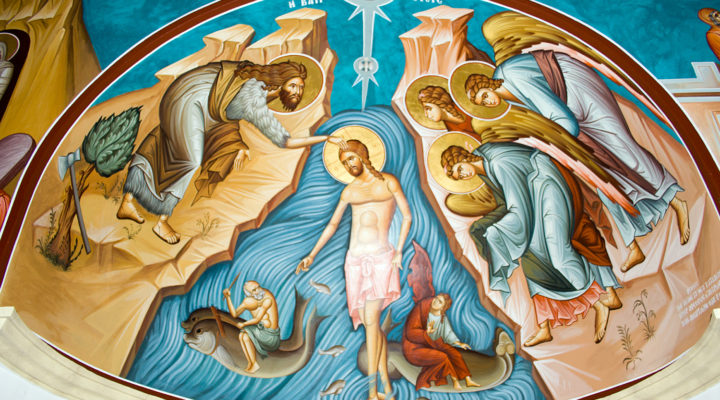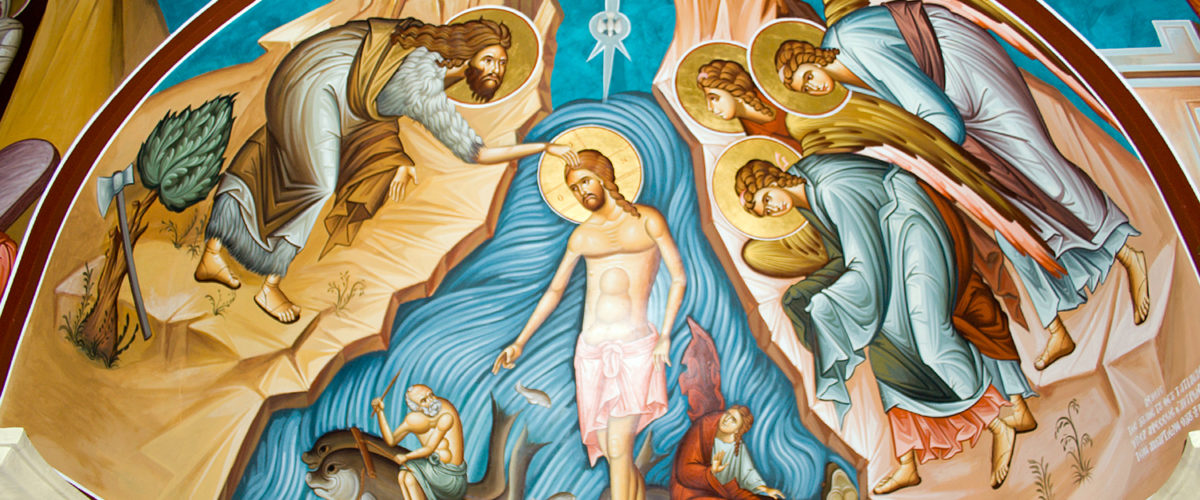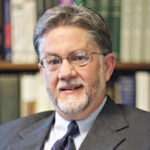A Southern Baptist theologian is denying accusations of reforming the doctrine of the Trinity to advance a social agenda that wives must submit to their husbands.
Bruce Ware, a professor of theology at Southern Baptist Theological Seminary in Louisville, Ky., published an online response June 9 denying his view that roles of authority and submission exist within the Godhead lies outside of orthodox Christianity.
Liam Goligher, senior minister of Tenth Presbyterian Church in Philadelphia, had assailed the doctrine in a two-part blog June 3 and June 6 accusing theologians like Ware of “presenting a novel view of God; a different God than that affirmed by the church through the ages and taught in Scripture.”
Ware denied that charge in recent blog postings that the view popular in New Calvinist circles like the Gospel Coalition and Council for Biblical Manhood and Womanhood “is being devised for the purpose of supporting a social agenda of human relations of equality and complementarity.”
The online skirmish is the latest eruption of a controversy that has been going on among conservative evangelicals for several years over the Trinity, a central doctrine of Christianity that one God exists in three persons — Father, Son and Holy Spirit.
At issue is the question of whether Jesus’ obedience to the Father while on earth was limited to the Incarnation or descriptive of the Son’s eternal relationship with the Father in the Godhead. Ware, a past president of the Evangelical Theological Society, listed eternal submission among reasons “why we should affirm that God designed there to be male headship” in a 2008 sermon.
“If it’s true that in the Trinity itself — in the eternal relationships of Father, Son and Spirit — there is authority and submission, and the Son eternally submits to the will of the Father,” Ware said in the message at Denton Bible Church in Denton, Texas, “then this follows: It is as Godlike to submit to rightful authority with joy and gladness as it is Godlike to exert wise and beneficial rightful authority.”
In a group blog for the Alliance of Confessing Evangelicals, Goligher said, “They are building their case by reinventing the doctrine of God, and are doing so without telling the Christian public what they are up to.”
“What we have is in fact a departure from biblical Christianity as expressed in our creeds and confessions,” Goligher said in Mortification of Spin, “Out of that redefinition of God their teaching is being used to promote a new way of looking at human relationships which is more like Islam than Christianity; more concerned with control and governance than with understanding the nuances of the relationship of the Son with His Father in eternity on the one hand and how that differs from the roles they adopt in the economy of redemption on the other.”
Carl Trueman, professor of church history at Westminster Theological Seminary in Glenside, Pa., piled on June 7 with “we need to keep our issues with the earthly politics of gender out of our reflections upon the eternal being of God.”
“That this species of subordinationism has been endorsed by New Calvinist leaders is disappointing,” Trueman said. “The movement has been swift to deal with errors on the doctrine of Scripture or justification but, historically speaking, errors on the doctrine of God have more often been the real source of problems for the church, whether we are thinking of Arians in the fourth century, Socinians in the 17th, kenoticists in the 19th or open theists in the late 20th.”
The word Trinity does not appear in the Bible, but numerous verses point to a relationship debated in the early centuries of the Christian church before being settled in the Nicene Creed’s description of Jesus Christ as “Very God of Very God, begotten, not made, being of one substance with the Father, by whom all things were made.”
Trueman said the question leaders of the Gospel Coalition, Council on Biblical Manhood and Womanhood and other New Calvinists must answer is simple: “Do you consider Nicene orthodoxy to be a non-negotiable part of your movement’s belief?”
Ware penned a four-part, 1,500-word rebuttal on Reformation 21, the online magazine of the Alliance of Confessing Evangelicals. Ware said those who affirm “the eternal authority of the Father and submission of the Son” accept the full deity of Christ and the idea “does not conflict in any way with orthodox heritage.”
Another proponent of the eternal submission view, Phoenix Seminary professor Wayne Grudem, said the articles by Goligher and Trueman “lead me to think that perhaps it is time to forego intemperate accusations of heterodoxy.”



